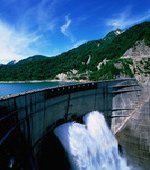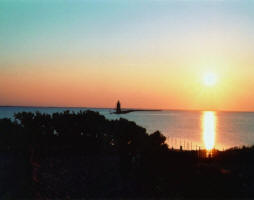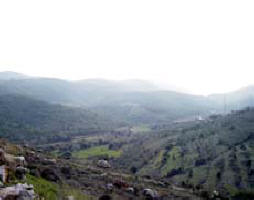 Union for the Mediterranean has to get serious
Union for the Mediterranean has to get serious
After being in place for almost three years the Union for the MED, invented by President Sarkozy to intensify the cooperation around the Mediterranean, has not been able to produce any visible results except putting in place a Secretariat in Barcelona and organise ministerial and official meetings.
Energy and water were supposed to be among its key priorities.
But the fourth ministerial water conference held in Barcelona April 13-14 ended without result: Israel refused to accept a reference to the "occupied territories", a term acknowledged by the international community for the Palestinian territories under Israeli occupation for last 50 years, and the Arab countries rightly refused to accept the EU compromise formula "Territories under Occupation".
Once again the Israeli-Palestinian conflict has blocked crucial policy issues in the Mediterranean.
It is high time for the EU to draw the appropriate conclusions. In the absence of unanimity it should organise cooperation with those countries willing to agree on a compromise. In the case of water, there has been agreement on 99 percent of the long term Mediterranean Water strategy. It should therefore go ahead without including Israel in the future network of cooperation. Israel can hardly supply Palestinian citizens with less water than it has in the past, the more so as the precious aquifers which Israel exploits are essentially on situated on Palestinian territories.
This being said, the Water Strategy as reflected in the preliminary documents leaves much to be desired. It does not dare to tackle the key issues: the need to save water for urban and agricultural use, and to reuse it. This will not be possible without introducing almost prohibitive water tariffs, abandoning crops like oranges or maize that consume huge amounts of water and produce only a low-value added and investing heavily in sophisticated water/irrigation technologies.
In the longer term Mediterranean countries will have no alternative but to cover their urban water supply by large-scale desalination, as to do the Gulf countries, but using solar generated electricity and, if absolutely necessary nuclear power.
Water is not an area that lends itself to regional cooperation, except for an exchange of best practices. This goes world-wide, but in particular for the MED. Except for Euphrates, Tigris and Nile there are no trans-national river basins around the MED. Anyhow, each country whether up- stream or down-stream is exclusively concerned with securing as much water for its citizens as it can. Egypt is a case in point. To secure enough water it insists on having a veto right on upstream irrigation projects! Turkey and Israel are as single-minded as Egypt when it comes to water, without caring much about Syrians or Palestinians.
Looking 30 years ahead, the perspectives for securing adequate water supply for the 350-400 million people around the MED are extremely bleak. Climate change and further rising population will make water the scarcest commodity in the region. Governments have allowed developments to drift without thinking about the long-term consequences: Exploding population growth, uncontrolled urbanisation, neglect of energy efficiency and renewable energies, rational agricultural policies.
The EU needs to fundamentally modify its approach to its Mediterranean partners.
It has to learn that big conferences or plenty of participants cannot be a substitute for effectiveness. There is no point having 40 countries around the table: The EU has to speak with one voice!
There can be no single policy recipes for several very diverse countries. The EU should focus on those neighbour countries that have the political will to undertake necessary reforms, whether in education, water, environment or energy.
The EU must pay infinitely more attention to its southern neighbourhood to avoid major catastrophes in the future. Its neighbourhood policy offers the necessary means. The EU only has to use it correctly.
| Contact information | n/a |
|---|---|
| News type | Inbrief |
| File link |
http://www.euractiv.com/en/east-mediterranean/union-med-has-get-serious-analysis-473553 |
| Source of information | Posted by Eberhard Rhein |
| Keyword(s) | Union for the Mediterranean |
| Subject(s) | ENERGY , POLICY-WATER POLICY AND WATER MANAGEMENT |
| Relation | http://www.upm-eau.net/medaquaministerial2010/ |
| Geographical coverage | Euromed, |
| News date | 30/04/2010 |
| Working language(s) | ENGLISH |
 you are not logged in
you are not logged in





